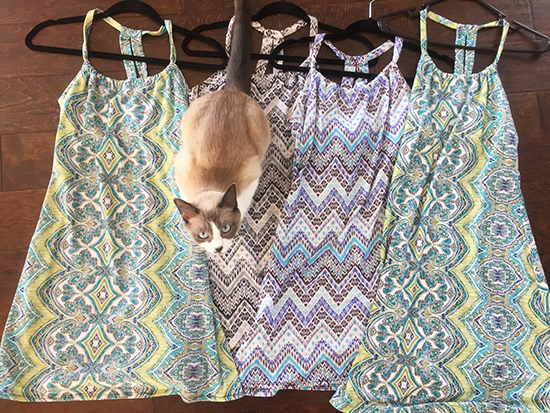
“I’d like to improve my finances. But I don’t want to become an extreme cheapskate, and I don’t know how to earn more.”
“I can’t get a raise. I guess I could get a side job, but I don’t want to mow lawns or wait tables. And I don’t think I have time to start a side business.
“What should I do?”
First, don’t dismiss frugality.
Yes, many blogs take frugality too far. You don’t need to unscrew your oven light to save three cents, or wear clothes while showering to avoid the cost of laundry. That’s insane. You won’t create wealth by skimping on laundry soap.

Will you?
Frugality is fine. Avoid fake frugality: saving pennies at the cost of your time and sanity.
There’s nothing economical about forgoing the chance to earn $10 by saving $2. I’m not just talking about business expenses; I’m talking about maintaining your mental bandwidth. When your mind is consumed with penny-pinching, you overlook thousand-dollar saving opportunities like refinancing your mortgage, lowering your insurance premiums and finding low-fee investments.
And yet –
You can afford anything, but not everything. You probably hold expenses that, if you’re honest with yourself, don’t reflect your priorities.
Your lifestyle could be:
- Possible: Bare-bones scrappy.
- Sustainable: Balanced.
- Excessive: Bling.
How do you know where you stand?
Convert prices into hours. Ask yourself if it’s worth the trade-off.
- Fancy dinner = two extra hours at the office?
- Shopping habit = 12 workdays per year?
- Difference between SUV and used Honda = four months of your life?
Once you frame purchases in this context, saving is automatic.
Don’t get caught on small-minded tactics like extreme couponing. Just reframe decisions as time-vs.-money, and your habits will start to change. Take the One Percent Challenge if you need encouragement, and join the Facebook Group of fellow challengers.
Let’s move to the next part of your question.
How Can I Find Interesting, Lucrative Work?
I agree, you shouldn’t mow lawns or clean gutters if your time is worth more than $15 an hour. But “hustle” is not a euphemism for “adolescent summer job.” You can create a side business that plays to your strengths.
We live in the gig economy. Anyone with Internet access can earn thousands extra.
“Oh yeah? Prove it.”
Imagine you work 10 hours per week at a side project. You might choose 6 – 8 pm, five days a week, and enjoy weekends off. Or you might choose to work from 10 am – 2 pm on weekends, maintaining your evenings.
If you earn $30 an hour, you’re pulling in more than $15,000 per year. Would that make a difference in your life?
But I get it:
You’re busy. You’re tired. You don’t know where to begin.
Let’s fix this, one-by-one.
“I’m Too Busy.”
Hey, I get it. Me too. Here’s what you need to do:
#1: Work in the Margins
You might not have a two-hour chunk of free time. But you might have 20 minutes now. And another 20 minutes later. These accumulate into 1-2 hours a day. That’s enough to make a huge dent.
#2: Cut the Crap.
How often do you check Facebook? Read the news? Watch TV? Scroll Twitter? Play Angry Birds?
It baffles me that people who claim “I don’t have time to hustle” can tell me last weeks’ sports scores. Or can map the Kardashian family tree. (That’s Kim, Khloe, Kourtney, Kendall and Kylie.)
You have time for anything, but you don’t have time for everything. Every moment is a trade-off. Yes, that means your iPhone Sudoku habit may have to go.
#3: Adjust Bedtime by 30 Minutes
Wake 30 minutes earlier than usual. Go to bed 30 minutes later. This one change alone creates an extra hour in your day. (And I bet you could create another hour if you stopped watching TV or scrolling mindlessly on social media.)
If losing an hour of sleep is too drastic, shorten this to 20/20, or even 15/15. This starts the habit.
“I’m Tired.”
Your brain space — mental bandwidth — is critical. Once it’s sapped for the day, it’s gone. Here are tips on how to sustain mental energy:
- Drink water. I cannot overstate what a difference this makes.
- Avoid alcohol. I love cocktails, from martinis to Manhattans. But booze is a productivity-crusher. Drink sparingly.
- Do your highest-level work in the morning. Tackle anything that requires deep thinking at the start of the day. Delay emails, social media, etc., until later.
- Avoid huge meals. Your body needs energy to digest large meals. (That’s why office workers are tired after lunch). Avoid meals; nibble and graze instead.
- Drink greens. Most work days I combine berries and loads of leafy greens (spinach/kale/chard) into a blender. When I drink it, I feel like Popeye after he slams a can of spinach.
- Limit decisions. I wear the same clothes everyday. I have four versions of the same dress in different colors.
Why such repetition? This spares me from decision fatigue. I can devote more brainpower to my online business during those crucial morning hours, instead of deciding what to wear.
That’s why Mark Zuckerberg wears grey shirts everyday; why Steve Jobs wore a black turtleneck daily. Here’s a fantastic book about decision fatigue, and here’s an article summarizing the idea.
(You may laugh, but I’ve gotten results.)
Maybe you work in an office. You can’t wear the same thing everyday. But there are other inconsequential decisions you can eliminate. Perhaps it’s the food you eat for breakfast, the way you fix your hair, or some other inconsequential detail.
Keep your mind clear in the mornings so you can focus on your highest-level work.
“I Don’t Know How to Start.”
People often get stuck on the notion that they need a world-changing idea, the next Apple or Tesla.
But you don’t. You only need to fill a need.
At this point, most online articles would list “100 side hustle ideas!” followed by an unhelpful laundry list. App developer? Airbnb host? C’mon, this sucks. The problem isn’t a lack of ideas. The problem is finding a solid roadmap that can carry you from idea to launch.
Deep-diving into any one of these fields is beyond the scope of a single article. (In this four-part series, I discuss how to become an Airbnb host.) Since we can’t deep-dive into the “how,” let’s spend this article giving you the mental framework when choosing your business.
Your side business should hold three qualities:
#1: Flexible. You don’t want to commit to a shift with specific hours.
#2: Home-based. You don’t want another commute.
#3: Lucrative. If you make $60,000 in your regular job, you earn about $30 per hour. It’s reasonable that you’d want at least that rate from your hustle, as well.
What fits the bill? Internet-based work. Yes, there are non-Internet gigs, but online businesses offers the best shot of meeting those three qualities.
But the Internet is merely the medium connecting you to your customer. You’ll need to find the customer. Start with an avatar.
Don’t ask “what should I do?”
Ask “whom can I help?”
- I help owners of small accounting firms in Seattle develop their social media presence.
- I help restaurant owners get local publicity.
- I help food bloggers land more interviews on podcasts and radio.
- I help real estate brokers in Cincinnati develop their websites.
- I help independent hairstylists in Kansas City get more appointments.
Once you develop this avatar, talk to them. Find people who meet this description and ask about their needs. Test every assumption. Don’t tell them what they need; ask how you can help. You’re not selling anything at this point. You’re listening.
Once you’ve listened to your target customers, you’ll understand their most pressing concerns. Now it’s time for you to develop the skills needed to solve those problems.
How can you develop these skills? Read books and blogs. Listen to podcasts. Find an introductory client and work for a steep discount while you learn-on-the-job.
Once you’ve developed these skills, network online. Read the same websites as your target customer; chat in the same forums. Provide value without being sale-sy, while letting it be known that you offer such-and-such services.
It may be slow in the beginning. It might take 3 or 4 months to land the first client. But every 30 minutes of focused effort is a snowflake, accumulating over time. You’ll start turning away work; your plate will be too full.
Still unsure of striking out on your own, and you love pets? Then sign up to be a pet sitter or dog walker with Rover!
You’re free to make your own schedule, and you won’t need to worry about marketing yourself or selling your services. That’s because Rover makes it super easy and promotes you to a huge network of pet parents as soon as you get listed on their site. Plus, you can earn $100/week (or more!) as a pet sitter or dog walker!
How I Hired My Team
Both of my amazing assistants used to be regular people with 9-to-5 desk jobs. But they wanted digital freedom. They decided to create an online business.
Long before we met, they knew who I was. Not “me,” Paula Pant – but “me,” the customer target. The avatar.
They decided to help finance bloggers by managing the behind-the-scenes administrative tasks that we face. They learned this niche. They know about nerdy stuff that bloggers talk about – such as behind-the-scenes software like LeadPages and ConvertKit and Edgar.
I don’t have to worry about teaching/training them on these basics. They know it. They took initiative to become self-taught.
I hired them, because they wanted someone like me to hire them.
The Bottom Line
Money-management reduces to three steps: Earn more. Spend less. Invest the gap.
It’s simple. It’s not easy, but it’s simple.
Good luck, my friend.
NOTE: Article updated in May 2016 for brevity and clarity.

